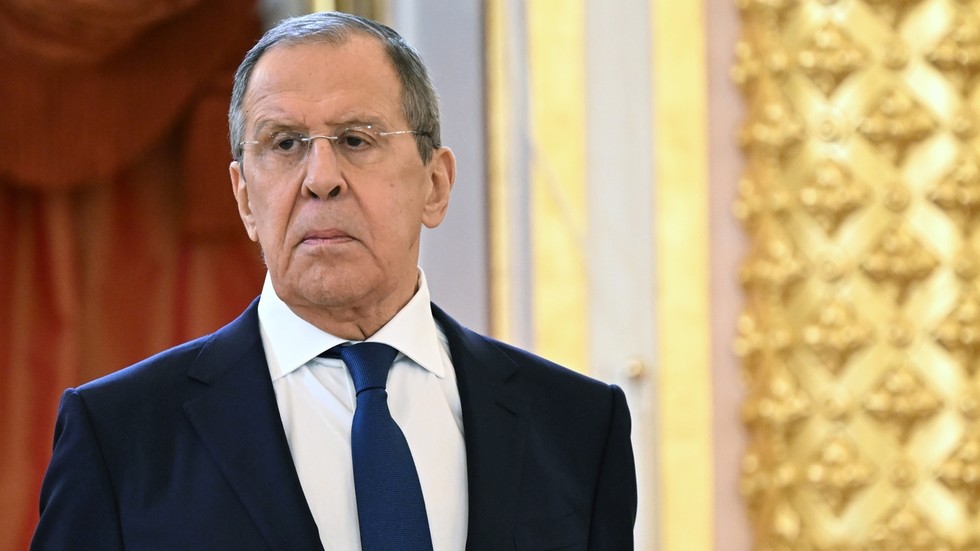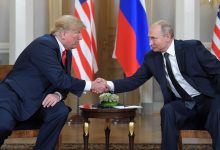
Western hostility doesn’t mean Russia should behave like Ukraine, the foreign minister has said
File photo: Russian Foreign Minister Sergey Lavrov © Sputnik/Pavel Bednyakov
Russians should not give up the English language just to spite the West in the way Kiev ditched Russian to spite Moscow, Foreign Minister Sergey Lavrov said in Moscow on Thursday.
Lavrov was hosting an 11-year-old girl from Lugansk named Anastasia as part of the ‘Wishing Tree’ charity campaign. When she told the foreign minister she was studying English, he praised her and said it was a good language to know.
“I don’t think they are right, those who say ‘Well they are setting the entire world against us, so let’s get away from the English language.’ That’s stupid, because the language has nothing to do with it,” the minister said.
“That’s just like when [Ukrainian President Vladimir] Zelensky banned the Russian language, Russian education, [and] Russian media in Ukraine,” he added.
Some Russian lawmakers have mooted downgrading the status of English in all levels of education, from mandatory to optional. A member of the State Duma from the ruling ‘United Russia’ party, argued in April that English had become the main international language only because schools mandate it.
Read more
“We need to move away from the pro-Western vector in the Russian education system,” Sultan Khamzaev told the media at the time, insisting there was no point in forcing Russian children to learn English when the world also consists of China, India, Africa, Arab states and Latin America.
The US, Britain and Canada have been among the most outspoken supporters of Ukraine in the conflict with Russia, and have led the campaign to “cancel” the Russian language, culture and heritage throughout the West, or have it rebranded as “Ukrainian.”
Lavrov himself is fluent in English, French, Dhivehi (spoken in the Maldives) and Sinhala (used in Sri Lanka), along with his native Russian.
The ‘Wishing Tree’ is a charity campaign that helps children from various backgrounds see their wishes come true around the New Year’s holidays. It has “granted” the wishes of 107,000 children since its inception in 2018.
In addition to Anastasia – who wished to meet him in person – Lavrov granted two more wishes this week, helping 14-year-old Ksenia from Amur Region get a vinyl record player and 11-year-old Arseny from Moscow to play a game of chess with grandmaster Sergei Karyakin.




